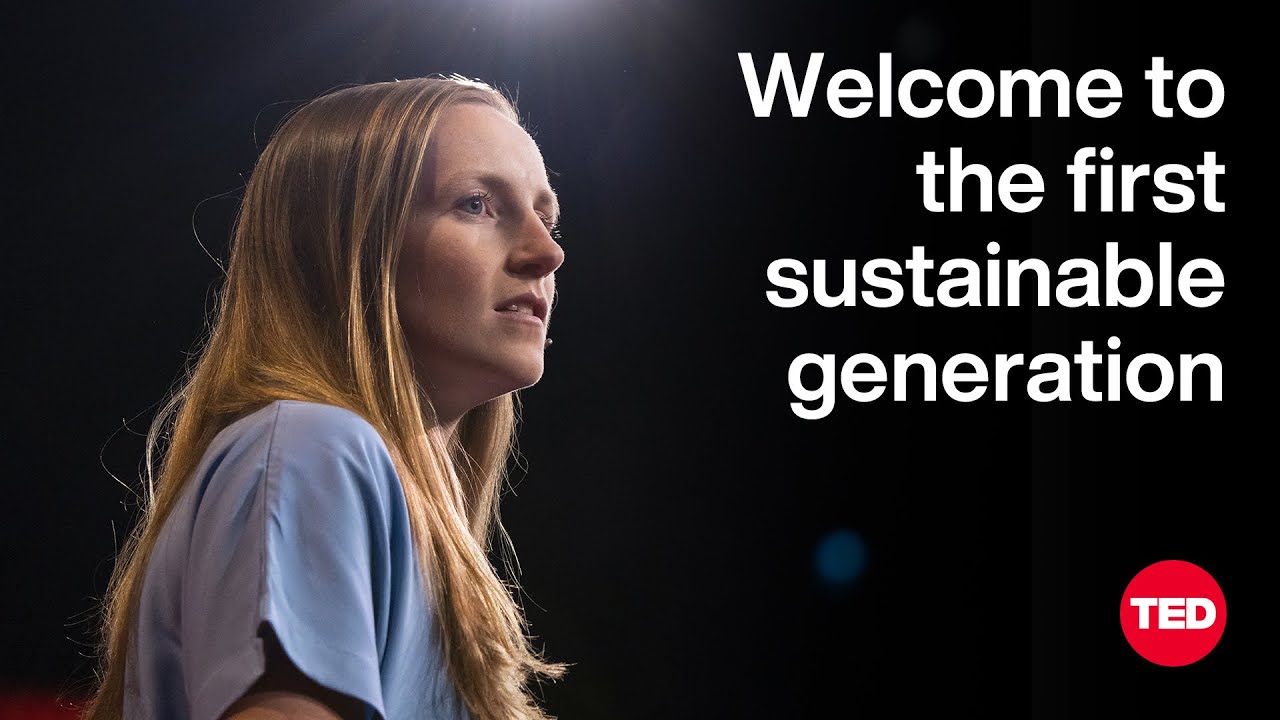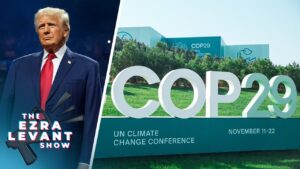
The word “sustainability” gets thrown around a lot these days. But what does it actually mean for humanity to be sustainable? Environmental data scientist Hannah Ritchie digs into the numbers behind human progress across centuries, unpacking why the conventional understanding of sustainability is misleading and showing how we can be the first generation of humans to actually achieve it.
If you love watching TED Talks like this one, become a TED Member to support our mission of spreading ideas: https://ted.com/membership
Follow TED!
Twitter: https://twitter.com/TEDTalks
Instagram: https://www.instagram.com/ted
Facebook: https://facebook.com/TED
LinkedIn: https://www.linkedin.com/company/ted-conferences
TikTok: https://www.tiktok.com/@tedtoks
The TED Talks channel features talks, performances and original series from the world’s leading thinkers and doers. Subscribe to our channel for videos on Technology, Entertainment and Design — plus science, business, global issues, the arts and more. Visit https://TED.com to get our entire library of TED Talks, transcripts, translations, personalized talk recommendations and more.
Watch more: https://go.ted.com/hannahritchie
TED’s videos may be used for non-commercial purposes under a Creative Commons License, Attribution–Non Commercial–No Derivatives (or the CC BY – NC – ND 4.0 International) and in accordance with our TED Talks Usage Policy: https://www.ted.com/about/our-organization/our-policies-terms/ted-talks-usage-policy. For more information on using TED for commercial purposes (e.g. employee learning, in a film or online course), please submit a Media Request at https://media-requests.ted.com
#TED #TEDTalks #sustainability
source







Hannah's definition of sustainable is bizarre. She seems to have defined it as something all/most humans would agree with and want. So of course, achieving those things would be sustainable in her view. However, sustainable means it can be sustained indefinitely. Of course, this has never been true of any species or ecosystem on Earth but many have persisted for an incredibly long time. In general, only systems which consume resources at or below (preferably below) the renewal rates of those resources and do not damage the environment at a rate that the environment can't assimilate without continued damage can be close to sustainable. This has nothing to do with what we want for ourselves or our children. Nothing in Hannah's talk shows that achieving her goals can lead to sustainability because she doesn't address the essence of what sustainability means. Physics/nature doesn't care about what humans want and will apply its rules regardless.
We might still have a future thank you for this 🩵
I'm missing nuclear in this talk … in her book she got anry about environmentalists, who insisted on 100% renewables and opposed nuclear. We need all carbon-free energy solutions!
Love this! Incredibly refreshing and I’m currently reading her book.
My only query I have is about crop yields… the higher production from crops means that the soil takes a massive hit and it reduces its quality, no? The way we treat the soil is reprehensible. We need diversity within soil to store carbon and to rewild the land.
But maybe she discusses this further in her book and I’m yet to read it!
Shared on Mastodon ClimateJustice by JdeB
Hannah Ritchie is perhaps the single most detrimental person to the climate movement alive today. The level of misinformation and misuse of data is staggering. That she is being elevated like this is terrifying.
Thanks so much, Hannah! We have to be the first sustainable generation, and I know we can do it!. I came across an interesting article in the New York Times this week. It was called "Why Is the Oil Industry Booming?"( 2024/07/16). It made me think about how much US oil and gas production has increased recently. It seems that oil CEOs are expecting their companies to keep growing until at least 2040! It's a bit of a puzzle, isn't it? The thing is, both types of energy are connected financially. How can we work through this together? I think your colleague Tim Jackson, the author of the book "The Prosperity without Growth," has a more realistic and optimistic view. He says we need to cut down on our emissions by 80% by 2050, which I think is totally doable! On the other hand, we need a lot of innovations to help our global society become more eco-friendly. We also need to embrace a new way of thinking about our economy, one that's focused on knowledge, learning, art, science, public health, and other important areas. These are the sectors that have always been decarbonized, so they're a great place to start. This new Cinderella economy will rely less on carbon emissions, giving the global economy what it needs most: new ideas!
This is definitely motivational! I'm reading her book as well, and it's significantly lowered my Climate Anxiety. My only qualms are that I wish she'd talk about people just using/buying less! It's frustrating that we can make all these tech advancements, but a lot folks just refuse to live with even a little bit less. Also, I would have liked to have heard more about our impact on animal species. I am more worried about my animal friends going extinct than I am about our sometimes toxic species! All in all, great talk, amazing woman.
Wonderful presentation
1337 indeed 👾❤🩹❤🔥
Shes a liar. For so many reasons. There were many sustainable large populations that after leaving destruction improved and became sustainable. That ended when more modern humans conquered and took over then destroyed. It's pretty well proven the Amazon is basically a food forest created by humans. Thats one example.
Sounds nice but the keeling curve is still accelerating.
Still feel we all know this for many years. In stead of monologues we need more Dialogue. Debates. Especially with the people who don’t agree or rather ignore the Hannah Ritchie’s of this🌎
Check out Paul Hawken's book "The Ecology of Commerce" for a great read on how businesses large and small can change their business practices to align with sustainable practices. It's a great read!
We shouldn't blame countries who are catching up, we should blame those who did it first and didn't do anything about it for decades! 5:23
What a great talk!
Amazing!!!! 👏👏👏
I can’t understand any word, should read 😢
Completely with you; I call it progressive environmentalism. We have an obligation to our children and grandchildren. I’m working on a project in Denmark, 100% carbon neutral cereal production, I think you may be interested, do you have an e-mail I may forward to? Kind regards, Les Mills.
look @shawnmendes ….. i wont be distracted from whats most important 🙂 I love you
I guess when the tribulation starts, this was the best of times ? Turn to Jesus
Hannah Ritchie sells great storylines. But we should really keep being more frightened, please refer to Johann Rockström
I want to believe…. but bigger and faster GDP growth is not the solution to an economy in overshoot.
Em meio a crescentes preocupações com as mudanças climáticas e a responsabilidade corporativa, países ao redor do mundo estão implementando regulamentações para promover a transparência e a sustentabilidade.